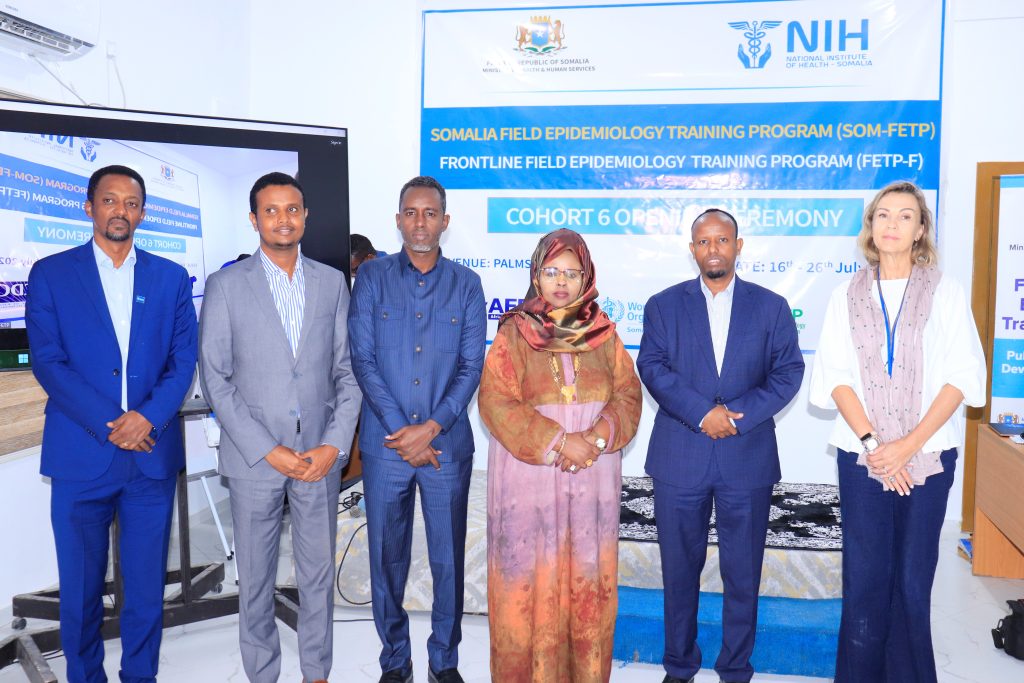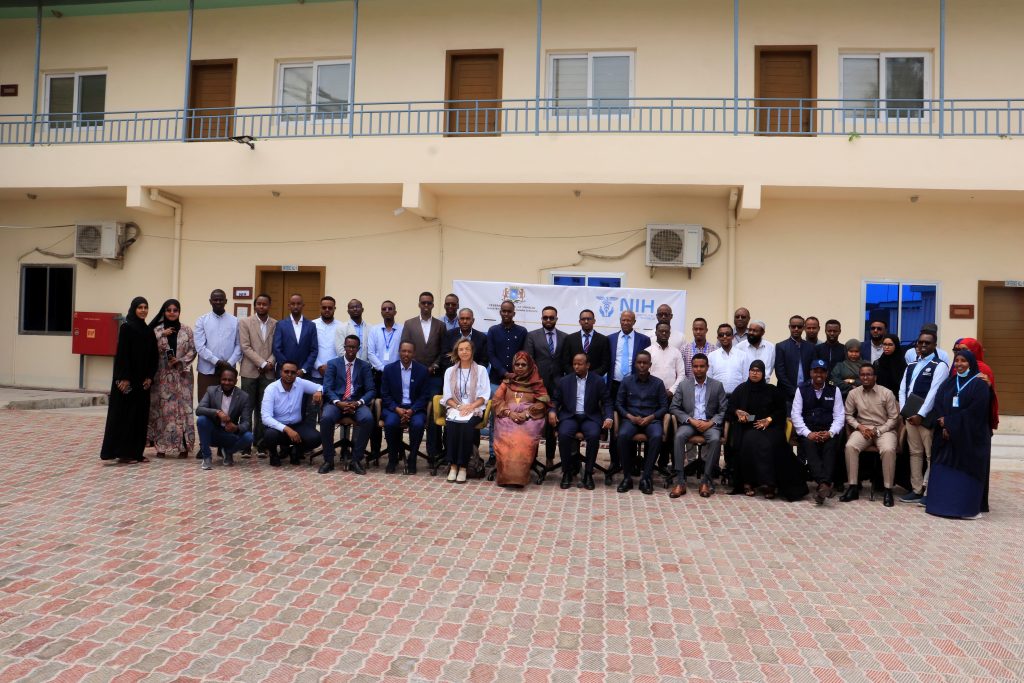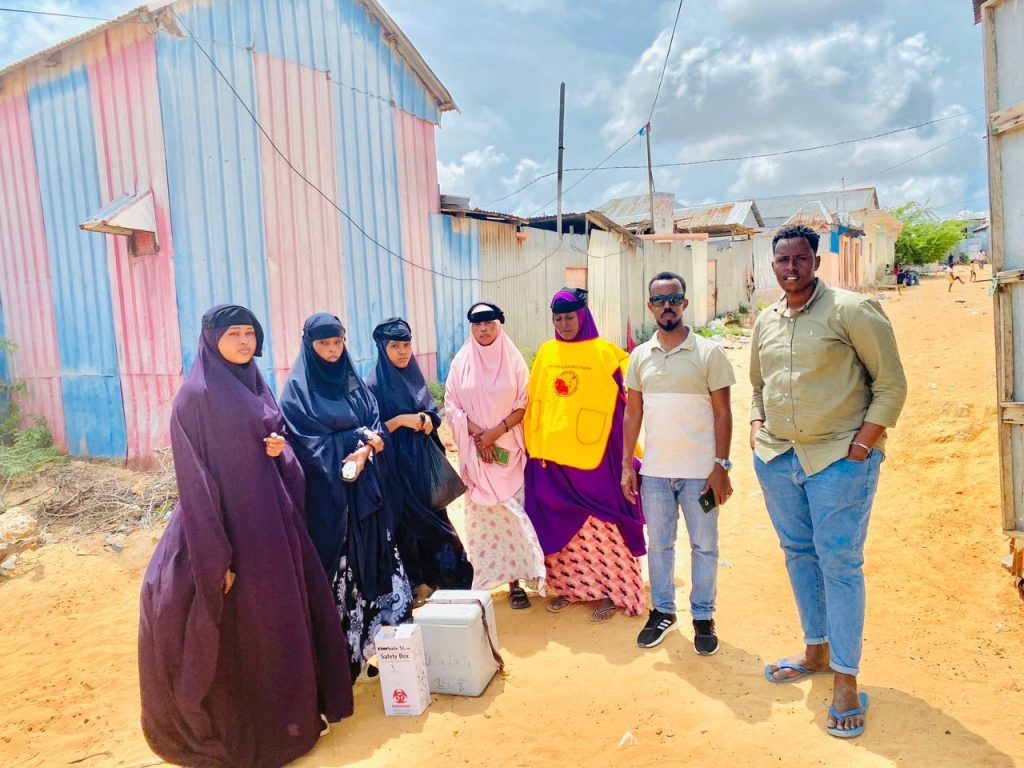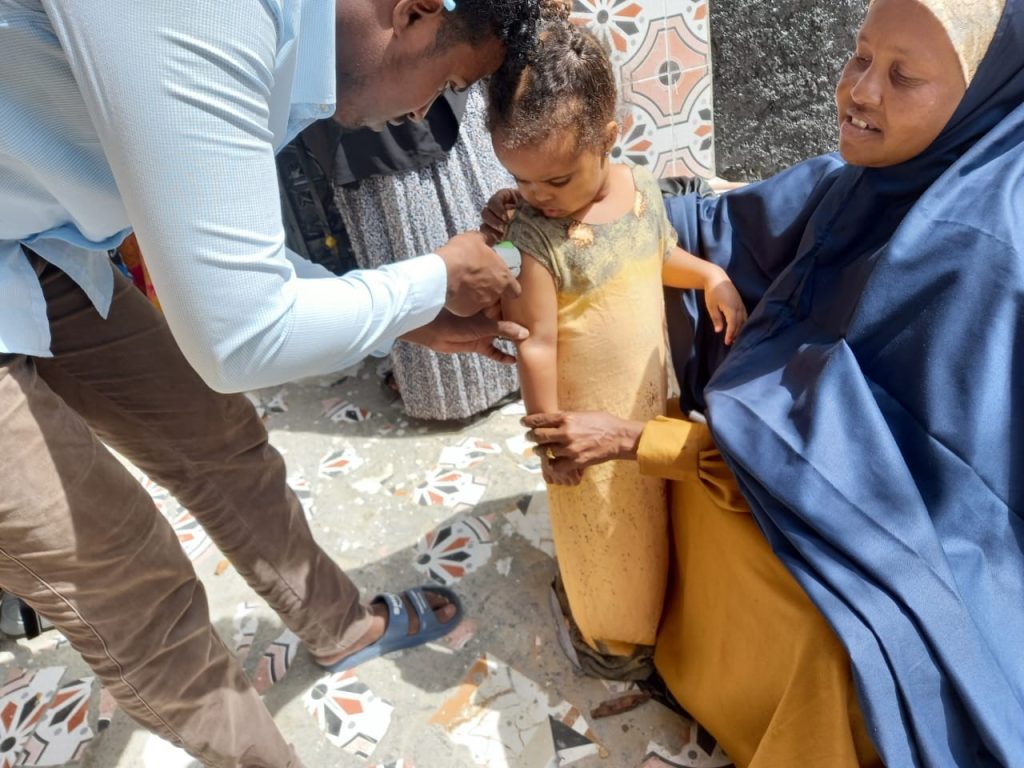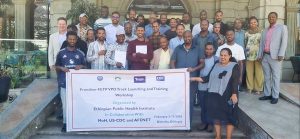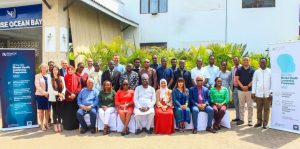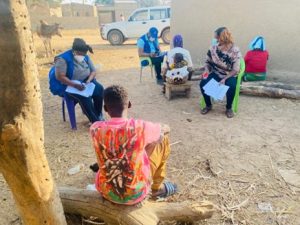Somalia’s Cohort 6 frontline FETP focus on immunization and laboratory system strengthening
-
by
AFENET
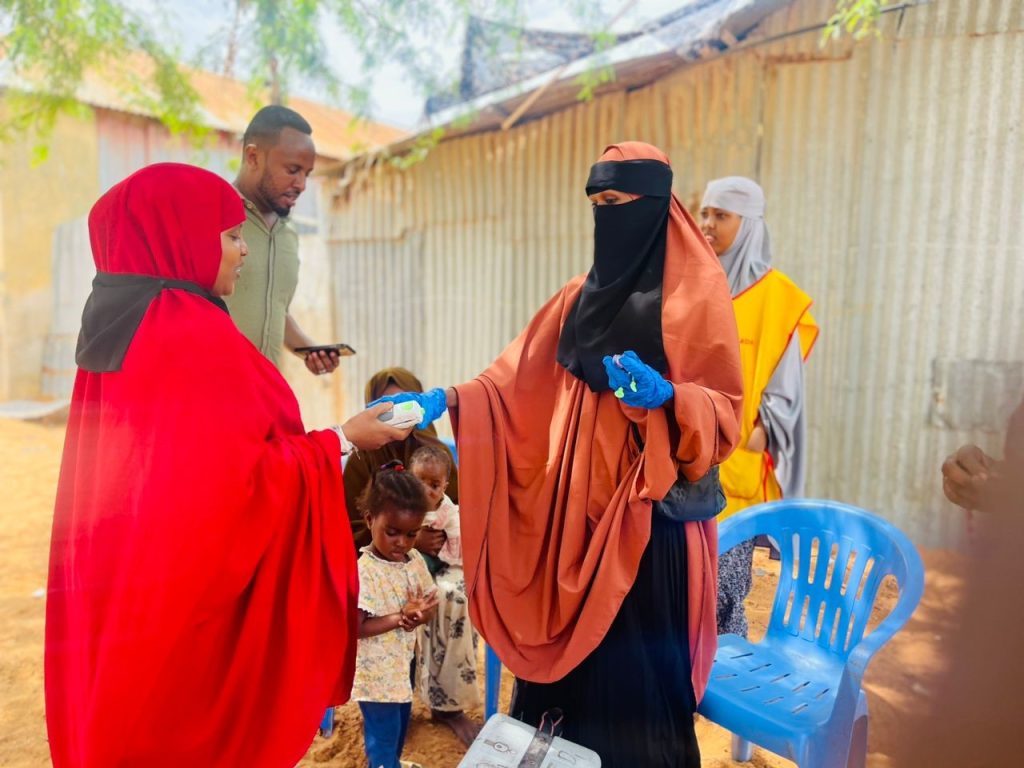
Somalia is strategically positioned at the crossroads of trade and conflict, with the Gulf of Aden to the northwest, the Indian Ocean to the east, Ethiopia to the west, and Kenya to the southwest, it has faced numerous challenges. The country’s 15.4 million population growing at nearly 3%, is expected to double in 24 years.
Somalia’s public health landscape is fraught with challenges, from political instability to natural disasters, necessitating a robust epidemiological capacity for early disease detection and rapid response. The introduction of an electronic-based Early Warning Alert and Response Network (EWARN) in 2008 marked a significant advancement in real-time detection and response to epidemic-prone diseases. Though deactivated due to civil conflict from 2008 to 2016, EWARN was reactivated in 2017 during a severe drought and cholera outbreak. The Somalia Field Epidemiology Training Program (FETP) trainees and graduates have since played a pivotal role in implementing and enhancing EWARN, significantly improving the timeliness, flexibility, and coverage of disease alert responses.
Between September 2021 and January 2023, the Frontline FETP trainees investigated 95 outbreaks. These included 54 measles outbreaks (50 confirmed), 17 cholera outbreaks (15 confirmed), 9 suspected dengue fever outbreaks (7 confirmed), and smaller numbers of influenza-like illness, COVID-19, suspected monkeypox, acute flaccid paralysis, pertussis, and neonatal tetanus. Notably, 51% of these outbreaks were responded to within 48-72 hours, demonstrating the program’s efficiency and effectiveness.
Sustainability is key to the Frontline-FETP’s success in Somalia. Ten top-performing health officers from the first cohort have become co-mentors, addressing local mentorship challenges and ensuring the program’s longevity. Additionally, three graduates from cohort one now hold leadership positions, including the Head of National Emergency and Surveillance, the Director of the National Public Health Laboratory, and the Surveillance Officer of MCH in the Banadir region (Mogadishu). Their involvement guarantees sustained local capacity and interest in the program, particularly in security-challenged areas.
The launch of the 6th cohort of the Frontline FETP on July 16, 2024, marked a significant milestone. This cohort comprises 25 health workers from various regions of Somalia, continuing the program’s mission of empowering health decision-making and strengthening health security. This new cohort emphasizes immunization service delivery and laboratory strengthening which are critical areas in improving Somalia’s health outcomes. Dignitaries from the Ministry of Health and development partners were presented at the occasion.
State Minister for the Federal Ministry of Health, Maryam Mohamed Hussein, praised the expedited selection process and highlighted the program’s role in supporting epidemiology, gender equity, and preparedness. She also championed women’s involvement in public health leadership.
Khayriya Mohamed, Senior Strategic Advisor at the National Institute of Somalia, stressed the coordinated surveillance efforts and the importance of scientific conferences and publications. Kasim Mahdi, AFENET’s Resident Advisor for Somalia FETP, explained the program’s competency-based training, consisting of 25% didactic learning and 75% fieldwork, equipping health workers to address real-time problems.
Dr. Tatek Bogale, AFENET Regional Technical Coordinator, underscored the continent’s need for more field epidemiologists, expressing gratitude to the United States CDC for their funding support. Dr. Amalia King from CDC Atlanta highlighted the importance of building public health capacity, particularly in epidemiology and data visualization, to detect, control, and prevent disease outbreaks.
Dr. Reinhilde (Renee) Van de Weerdt, WHO Representative to Somalia, discussed WHO’s collaboration with the Ministry of Health to strengthen health systems and praised the FETP for its effective response to outbreaks such as measles and cholera. She also stressed the importance of gender equity in public health.
Dr. Hussein Abukar Muhidin, Executive Director of the National Institute of Health, and Dr. Ali Haji Aden, Somalia’s Minister of Health, acknowledged the critical role of government support and partner organizations in the program’s sustainability. They called for continued support from AFENET, US CDC, WHO and other partners to ensure the program’s future success.
The launch of the 6th cohort of the Frontline FETP represents a significant step in rebuilding Somalia’s health system, ensuring that current and future generations benefit from improved public health decision-making and preparedness. The Somali Frontline FETP has demonstrated its crucial role in enhancing public health and disease surveillance, significantly contributing to outbreak investigation and response, and public health service delivery in the country.
